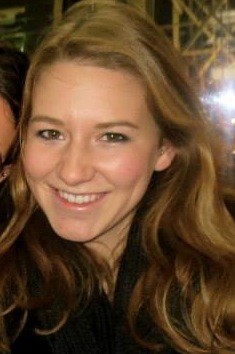 Last spring, we asked several current Penn students in the College of Arts & Sciences to talk to us about their summer internship experience.
Last spring, we asked several current Penn students in the College of Arts & Sciences to talk to us about their summer internship experience.
We hope these brief interviews give you some insight into the many opportunities and career fields that await you out in the world!
The first interview was with Lindsay Barlow, CAS ’15.
- Tell about yourself!
- Name – Lindsay Balow
- Hometown – Madison, CT
- Year/major/minor – Class of 2015 (junior); major in Communications & Public Service; minors in French and Political Science
- Favorite class/experience at Penn – favorite class: America in the 1960’s
- Where did you work/job title?
- I worked at the Annenberg Public Policy Center doing research for the Civility Project as a research assistant. The Civility Project looks at the language used in various media (mostly cable news and online blogs) and analyzes how different outlets use “uncivil” or civil language to cover the same issues. I mostly looked at political blogs (Red State, ThinkProgress, etc.) and focused on how they used words like lie, lying, liar, etc.
- How did you get involved in your summer position?
- I took a class with professor Kathleen Jamieson (Intro to Political Communication). I really enjoyed doing our final research project which was very similar to the work done at APPC, so I approached her about getting involved with research there at the end of the semester and she offered me the position.
- Did you have any background with this subject/field before?
- I am a Comm & Public Service major so I had experience with media bias in a more conceptual sense but this was the first time I had done quantitative research about it.
- What was your favorite part of the experience?
- It was really useful to learn how to conduct quantitative and qualitative analysis and write up case studies, and I felt like by the end of the experience I became very good at discerning patterns/trends and concisely presenting them. The other researchers at APPC were also awesome to work with and I gained a lot of close friends. The whole work environment was really laid back but people still took their work seriously. Over the summer when there was a huge heat wave, they brought in different food every day for lunch to keep our (uncomfortably hot) spirits up – that was great.
- What was something you learned/did that you didn’t expect?
- Working on this project changed my entire perspective on the media. It really made me aware of the biases that exist and how new media technologies like blogs completely alter the way people get their news and how it can cause selective reinforcement of ideas. I feel like this position made me much more conscious of where I get my information and I am now more inclined to look at multiple perspectives on important issues.
- How has this experience influenced your long-term career plans/goals?
- This position definitely cemented a lot of concepts I had learned in my different comm classes and I was able to see these be practically applied. It was great to get research experience and I think my interest in political media became much stronger after analyzing it so closely. While I don’t think that I want to go into research in the future, I think this background is really helpful for a lot of reasons. I was able to develop a great working relationship with a professor whom I now hope will be my senior thesis advisor. When I was applying for jobs this summer, having a research position on my resume was really helpful because the quantitative analysis aspect was a good contrast with my humanities studies. Plus, it was great to be able to talk extensively on a subject that I know well. When the Civility Project is over, it will likely be published with my name on it, which is an added bonus!

